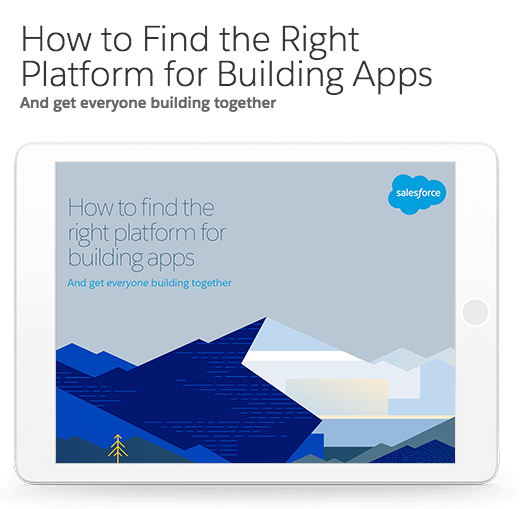The Market for Enterprise Apps
Today, there are currently well over two million apps on the Apple App Store (and similar figures for Google Play), with this figure predicted to reach five million by 2020. All of these apps are built for a mobile first experience – whether it is a smartphone or a tablet device.
The consumer world has led the way in innovation in apps since the emergence of the smartphone. While a majority of apps on the market are gaming apps, a large proportion of mobile apps now fall into the category of enterprise and productivity apps. And within this category, a huge selling point is mobility and being able to effectively run your business from your phone.
Let’s take a look at some of the biggest benefits to mobility with enterprise apps:
1. Usability and intuitive user experiences
When Sir Jonathan Ives first designed the iPhone, he undoubtedly crafted a beautiful product. The iPhone was a tour de force in technology and design. Consumer apps followed this trend. Enterprise apps have caught apace with the consumer world, forging a reputation for excelling in user experience design and simplicity - and yet still offering a breadth of functionality.
And with this, they have managed to fundamentally change the way businesses operate with the increased productivity seen through mobile apps. Their ease of usability has enabled the use of smartphones and tablets in the workplace to become ubiquitous in everyday work use-cases.
2. Less reliance on being tethered to the desk
The first enterprise companies to go mobile offered scaled-back versions of full desktop solutions. But what may have started out as simple email-based mobile apps for enterprises now offer entire enterprise solutions available for use on a smartphone.
Looking at one example of mobility within enterprise apps – field service solutions – have transformed operational efficiency and service capabilities for a range of industries. Solutions like these can be applied to financial services, professional services, telecommunications and many more.
They offer a range of in-the-field functionality that a desktop solution would not have offered - location based services, real-time dispatcher information, scheduling, and fleet management.
3. Enhanced service capabilities for a range of industries
Business models and value adding services can be built on top of a mobile-first mindset, acting as a source of competitive advantage. Consider how some of the most innovative companies in the world use mobile apps as a core part of their business model and offering.
- Facebook and their various apps Messenger, Facebook, Whatsapp, Instagram
- Uber and the primary shop window into their business being their mobile app
- Airlines and mobile apps becoming the primary medium of communication with passengers
4. Operational Efficiency
A solution that is built with a mobile user experience in mind can often bring an improvement in operational efficiencies. In the past user experience was an afterthought when enterprise solutions were translated across to a mobile devices.
This is essentially a paradigm shift in the architecture of enterprise solutions. The era of digitisation has led to new ways of introducing operational efficiencies.
For example, rather than just digitising existing processes, companies should use the opportunity of embracing mobile apps as a catalyst for re-considering entire workflows. And ultimately, making mobile and a user-centric strategy central to this.
5. Ubiquity of Mobile in the Workplace
A business that is equipped with mobile compatible enterprise solutions will quickly see how ubiquity brings some of the aforementioned benefits.
Everyday small tasks to business critical processes are bettered. From simple productivity tasks to field service management and value-added services for customers. In our personal life, people rely on mobile apps as though they are crutches to lean on to do day-to-day tasks.
The enterprise world exhibits the same behavior. It’s up to you to decide how to harness the potential of mobility and fully realise the value it offers.
Make your apps happen, today.
The future of app development is here – and it’s for everyone. Read How to Find the Right Platform for Building App e-book for a deeper dive into the limitations of traditional app building platforms, and discover how building on the Salesforce Platform can provide a better way.








